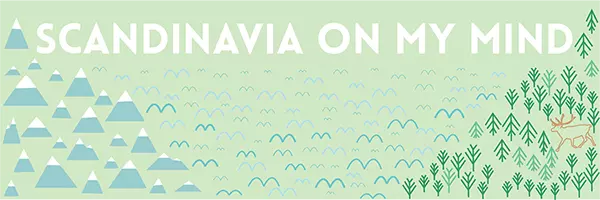Back in the mid-nineties, a teenage Ísold Uggadóttir left her hometown in Iceland to live and study German in Berlin.
In her new residence, Isold was staying with a “highly political” woman in her sixties and three pet cats. It sounds cosy, except that Isold soon noticed the woman was staying up late at night – later, even, than her young lodger.
After the woman introduced Isold to a refugee family, things started to make sense. “She told me that she was doing late-night jobs, but I realised she was helping illegal refugees,” Isold recalls. “It soon registered that this could be happening around the world.”
Fast forward to the new millennium, the older woman’s work doesn’t sound startling in the least. Especially for anyone who has seen Isold’s latest film, And Breathe Normally, an subtle exploration of what it means to be human in a world beyond borders.
On a basic level, the poignant drama is about the friendship that develops between single mum, Lara, (Kristín Þóra Haraldsdóttir) who has just started work at Keflavik Airport where she encounters Adja, (Babetida Sadjo) a refugee from Guinea-Bissau, who has been detained in Iceland.
“I first started work on the film in 2012, and at that time I’d never seen a refugee film come out of Iceland,” Isold says. “We mostly only talked about ourselves and the white population – I wanted to hurry up the process … it felt urgent for me.”
To research, Isold spent considerable time visiting refugees who’d found themselves in Iceland in Adja’s position and finding out more of their stories. “People often thought I was a government spy for asking so many questions,” she says.
This year, the Icelandic government allowed 55 refugees into the country. One recent report claims that 44.9 per cent of Icelanders believe the number of refugees being resettled is enough. Like most studies, attitudes can vary. “Those in the community who are dedicated to helping refugees are all very aware that the number we accept is lower than in neighbouring Scandinavian countries,” Isold says, “but you also have the other side who are concerned about who we are inviting into our country.”
All too often, refugees are represented as nameless faces without individual stories, but in And Breathe Normally Isold shifts the focus to tell the story through a queer lens. Part of this was a result of meeting and hearing about queer refugees who were being hurt or threatened by homophobic refugees.
“Some refugees from Uganda showed me their physical scars from when they were in African refugee camps. These were caused by other asylum seekers who were not gay,” she recalls, adding that many come from countries where the concept of homosexuality either does not exist or is considered to be “western propaganda.”
Isold (centre) with the cast at the film’s Sundance premiere. (Image supplied by the artist)
In many ways, And Breathe Normally is evidence of Iceland’s strengthening queer cinema scene, released after films such as Heartstone and Rift. Isold notes that when she made her earlier queer film, Family Reunion(2006), the film scene in Iceland was “a very straight male environment, and had been for a long time.”
That said, Isold doesn’t believe her film sits simply into one category. If refugees were an inspiration, so too was the financial crisis which brought her country to its knees. While Iceland’s economy might have bounced back, not all of its people have.
“There’s a hidden group in Iceland who are struggling with poverty,” she notes. “What is happening here is that the rich are getting richer: the rent I’m paying is five times what it was back in the late nineties, and what I’m earning is not five-fold today. It feels harder and harder to make ends meet if you’re not some rich person working in a bank or in some position of power.”
Single mum Lara is representative of poverty in Iceland.
Much has been discussed over the ending of And Breathe Normally. For the most part, Isold notes that audiences she meets have been inspired by the solution it proposes. “Sometimes, a bit of civil disobedience may be the only way out,” she says.
As for her own personal beliefs, it’s fair to say that Lara’s strength runs through Isold too. Having recently returned from the USA where And Breathe Normally was showing, she found herself enraged to learn of Mexican families being deported.
“It made me furious,” she admits. “I thought, ‘I would never obey such rules’, it’s so sick and inhumane. I think I’m one of those people who, if I’m angry enough, would encourage disobedience if the rules in question lack such humanity.”
My Scandinavia:Isold’s top picks
The Faroe Islands: I love the pureness of the Faroe Islands’ unspoiled nature and the generosity and warmth of its people. I experienced this at the Faroe Islands Minority Film Festival in August, where my film its Faroese Premiere.
The Faroe Islands (photo by Mitchell Jordan)
In Iceland, the Westfjords, and my family’s summer cabin in Skorradalur.

Leave a Reply